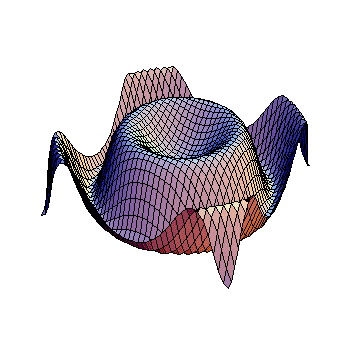What are the critical points of #f(x) =x^2ln(x/e^x)#?
1 Answer
Nov 17, 2015
So we have
Using log properties we can say it's
Differentiating we have
A critical point is a point in which the derivative is null, knowing that and that the domain of the derivative is the same as that of the function, we have
Since we know
However, we have that, for every value of
And so
And
So, there are no critical points.

